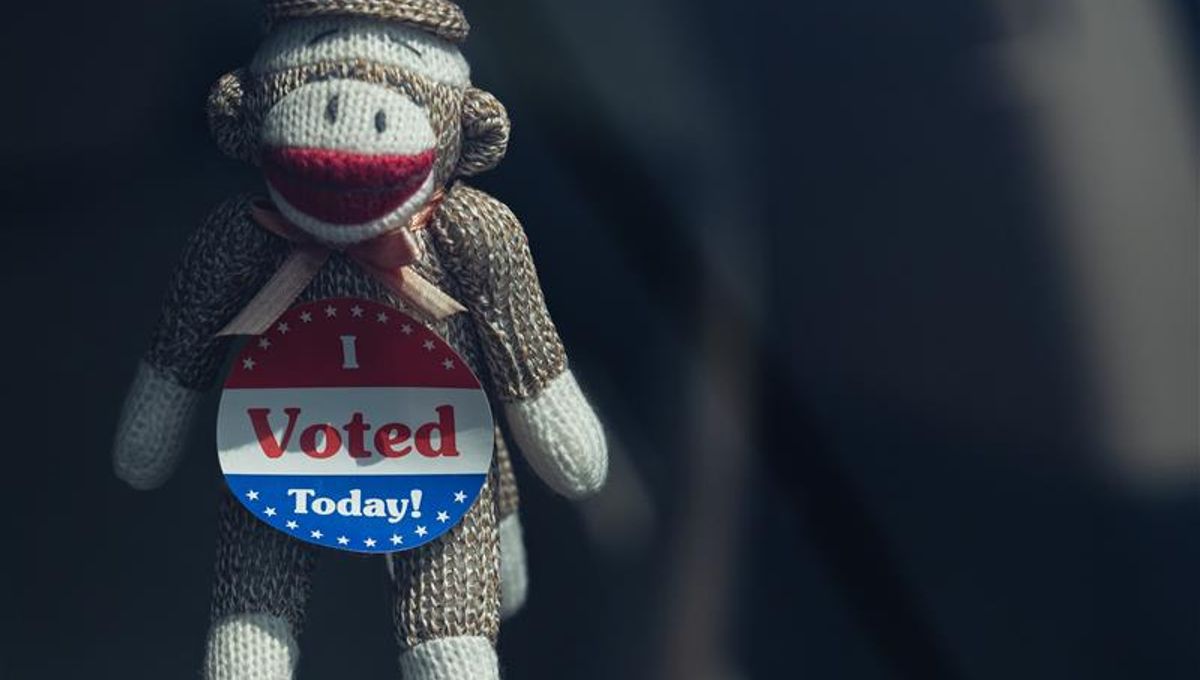
Move over Mr. Nuts, push off Paul the Octopus, and sayonara Staten Island Chuck. There’s a new oracular animal in town – and they’re ready to call the presidency. Kind of. No, we know what you’re thinking – but this isn’t your average “random animal seems to predict the future until a horde of angry football fans demand their immediate calamari-fication” story. This, if a team of researchers behind a recent preprint paper is to be believed, is real science.
“Rhesus macaques […] have no knowledge about political candidates or their policies,” notes their paper – which is not yet peer reviewed. And yet, they claim, “given a pair of candidate photos, monkeys spent more time looking at the loser than the winner.”
It may only have been 54 to 46, which isn’t particularly extraordinary, but that’s technically better than chance – and the three monkeys seemed even better when it came to more competitive elections, correctly choosing the winner in swing state elections some 58 percent of the time.
“This gaze bias predicted not only binary election outcomes,” they write, “but also the candidates’ vote share.”
It sounds… silly… we admit, if not completely unbelievable. But it’s perhaps not as left-field as you might expect. After all, previous research has already shown that humans can correctly predict electoral outcomes off a snap judgment on mug shots something like 70 percent of the time – in fact, even young children can do it. Why shouldn’t a rhesus macaque – an animal strikingly similar to humans in both physiology and behavior, whose brain has long been used as a model for our own – be able to do the same?
“That a […] 65-year-old votes like a 5-year-old suggests that there is something in our genes that probably drives decisions,” social scientist John Antonakis at the University of Lausanne, who was not involved in the study, told Science this week.
The results may be “provocative,” he said, but they are “not silly.”
If it is true, then, what could be behind the monkeys’ apparent ability to pick a winner? Well, it likely comes down to primate social hierarchies: “macaques attend to faces, trade alimentary rewards for brief glimpses of dominant monkeys, preferentially follow the gaze of dominant monkeys, and fixate longer on the faces of subordinate and female rather than dominant male monkeys,” the team point out in their paper.
“Thus, nonhuman primates prioritize visual social information and are sensitive to cues associated with social dominance.”
In other words, this could potentially have less to do with monkeys being undercover psychics, and more to do with humans’ inability to overcome our most primal – or primate – instincts. “Our findings endorse the idea that voters instinctively respond to evolutionarily conserved visual cues to physical prowess and masculinity,” the team writes, “and that voting behavior is shaped, in part, by ancestral adaptations shared with nonhuman primates.”
Now, Kamala voters start panicking, there are of course some caveats to this “more male equals more better” pattern – we are, after all, humans, not macaques, and women do in fact quite often win elections. In real life, the researchers point out, “other factors besides facial masculinity contribute to voting decisions.”
Indeed, the team found a few weak spots in the monkeys’ prediction skills. They were less accurate when female or older candidates were in the race – notably, age for humans tends to imply wisdom or competence (at least to a point), whereas for macaques, it’s more of a sign that you can safely be ignored.
Human voters also tend to prefer challengers rather than incumbents more than the macaque method would suggest, as well as Democrats.
Finally, of course, humans do (at least sometimes) take social and political realities into account when they vote. It may still be based on a gut reaction to a face, but we choose different candidates depending on whether our country is at war or not, which personality traits are prized in our particular society, and even simply how many times we’ve seen each candidate’s face ahead of time.
In the end, though, we know there’s only one reason you clicked on this article: who do the monkeys say is going to win in November? And the answer is… disappointing, to be honest: “It was a toss-up,” study co-author Michael Platt told Science.
Hm. Looks like we’ll have to actually look up some policies after all, then.
The paper, Monkeys Predict US Elections, is posted on the bioRxiv preprint server.
Source Link: Monkeys Enlisted To "Predict" US Elections By Staring At Candidates